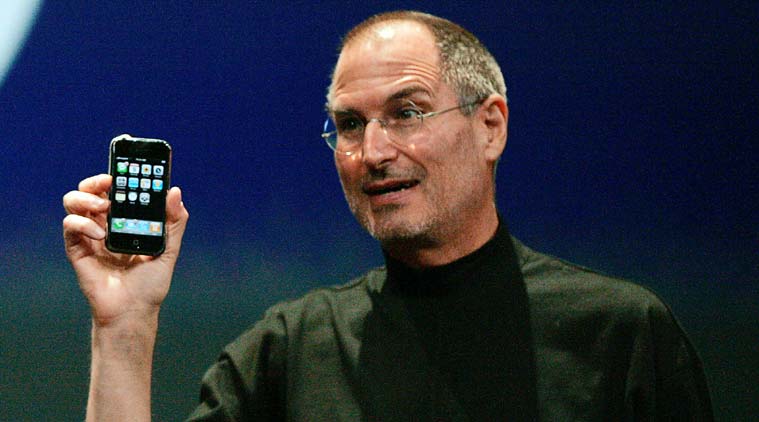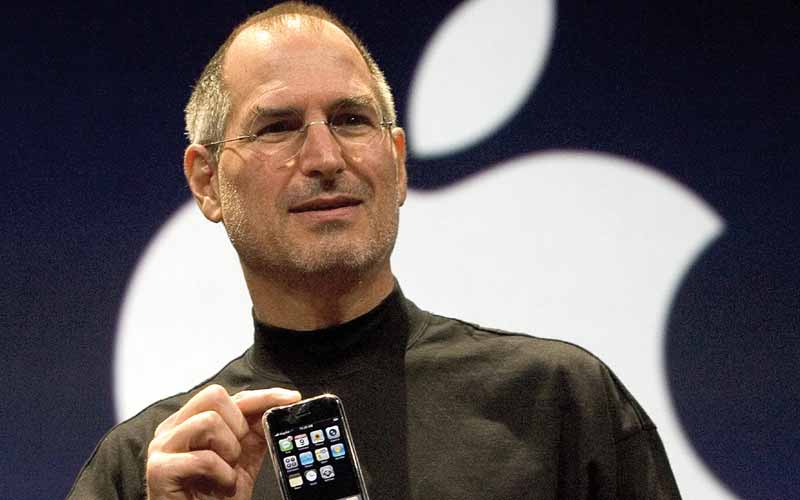 Today, marks seven years Apple co-founder Steve Jobs passed away. Would he have liked the Apple of 2018? (Image source: Reuters )
Today, marks seven years Apple co-founder Steve Jobs passed away. Would he have liked the Apple of 2018? (Image source: Reuters )
“This would not have happened when Steve was around!”
That is one of the most common refrains heard from the Jobs faithful whenever something seems to go wrong with an Apple product – be it iPhone camera eccentricity, MacBook keyboard issues or the discontinuation of the iPod (remember that!). And with every passing year, those protests grow louder. So as the world marks seven years since the passing of Steven Paul Jobs, the debate about whether he would have liked what Apple is doing today and where the company is, has been reignited.
So, would Steve have liked Apple today?
Of course, the man who could best answer that is more likely to be explaining the nuances of multi-touch to the Almighty at the time of writing. So, we will just have to fall back on good old speculation. On the surface, there is plenty to suggest that Apple has moved from several tenets that were supposed to be sacrosanct while Jobs was around – the company has a much wider product portfolio (there was only one iPhone and one iPad model launched every year when Jobs was around), there is a perception that its design has become more predictable, and more seriously, that the company is no longer the fortress of secrecy and sorcery that it was (or was perceived to be) in the Jobs era.
There is perhaps some truth in those beliefs. Yes, all said and done, Apple does seem to have got a little conservative when it comes to design – there has been only one major design overhaul of the Apple Watch, the iPhone has not been given as many radical makeovers as it was in the time of Jobs, and yes, the number of models has indeed gone up.
And yes, there is no doubt that over the past few years, we have learned to accept that most of the information about an Apple product will be leaked out well in advance before it is officially unveiled. There is also the little matter of design aesthetic – would Jobs have approved of a larger iPhone? At the time of his demise, the iPhone had a 3.5 inch display – today one of its variants is almost twice that size (6.5 inches on the iPhone XS Max).
 (Source: Reuters)
(Source: Reuters)
So yes, there is plenty to suggest that Jobs might have frowned at the goings-on productwise in Cupertino since his demise. But as in so many things, this is a conclusion that has been drawn based on very selective arguments. Yes, Jobs did like to be secretive about products, but his primary concern at the end of the day was also about making devices that would succeed in the market, and in that regard, Apple has been doing remarkably well, becoming the first company in the world to hit the trillion dollar capitalisation mark.
For all the complaints about the relative lack of change in design, the iPhone and Apple Watch remain bestsellers and pretty much the gold standards in the phone and wearables segment, respectively.
Yes, I know that there is a section of the public that stubbornly believes that Jobs did not care about consumers but as with many Jobs myths, this is not entirely correct – Jobs was notorious for not relying on consumer research, but he was always aware of the needs that a product could satisfy.
He did think of the consumer, but did not always ask what the consumer thought. And he was also not totally averse to releasing products that seemed largely similar to their predecessors – witness what happened to the iPhone and iPhone 3G, and some of the iPods.
It is also unfair to accuse Apple of totally having stepped away from the “compact device” mindset since the days of Jobs – the iPad mini was introduced after his demise.
There is no doubt that Apple is a different company since Jobs left it for a more heavenly role in 2011. But that does not mean it is worse off. The brand might not seem to be as “edgy” competitively as it once was but on the flip side, is also seen as a more inclusive and social one.
Read more: Elon Musk is NOT Steve Jobs…live with it!
The “softer” image developed by Tim Cook comes with its own benefits, one that cannot be scoffed. For all the talk of Apple losing its mystique, people still queue up for the new iPhone, and the iPad remains the only real tablet worth talking about, just as the Apple Watch is numero uno in the wearables category.
Most importantly – and I suspect this is what would have really mattered to Jobs – there are more people using Apple products than ever before.
Seven years after Jobs left it, Apple has changed. And you know something? I do not think he would have cared. This was the guy who appreciated being different, remember. He was the one who eulogised the crazy ones. Would he have liked Apple to carry on just the way in which it had when he was around?
Perhaps he would. As in most things Steve, it would be foolish to try and predict what he would have thought or done. My own feeling however, is that he would have approved.
Seven years after he left it, Apple thinks different.
And I think, somewhere, a tall man with round spectacles, wearing a black turtleneck and battered jeans is smiling.